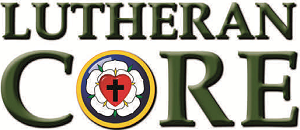Epiphany
Not too long ago, Congregations would set aside time each January 6th to worship and observe the Epiphany of Our Lord. These days, the tradition of an Epiphany service is not one that is too widely kept. Rather than celebrate the occasion when the Magi from the East (three wise men) came to visit the child Jesus, congregations and other Christian groups conveniently include these “three kings” in the narrative of Jesus’s birth. (We are just as guilty). As a result, the story of the Magi is largely misunderstood. Younger generations are not learning the significance of the Epiphany and older generations are not taking the time to share it. This is a sad reminder of how the world has encroached upon the Church.
It isn’t often that the day of Epiphany actually coincides with a congregation’s regular worship schedule. With people having such busy schedules, adding a service outside the regular worship schedule seldom happens. And so, it is not often when we hear the gospel text of the Magi visiting the child Jesus read and preached in its proper context.
This year, the Epiphany of Our Lord does fall on a day when we have a regularly scheduled worship. Rather than being wedged into a children’s Christmas pageant or other similar Christmas celebration, the narrative of the Magi will be read in context. You are invited to worship in person on the day of the Epiphany. If you have not attended worship on a Wednesday evening, this would be a good opportunity. Plan to join your church family on Wednesday, January 6 at 7:00p.m. for worship celebrating the Epiphany of Our Lord.
20+C+M+B+21
Upon the feast of the Epiphany (January 6th), many Christians (including Anglicans, Lutherans, Methodists, and Roman Catholics) chalk their doors with the pattern you see above. The numbers refer to the calendar year (2021), and the crosses stand for Christ. The letters have a two-fold significance. C, M, and B are the initials for the traditional names of the three Magi (Caspar, Melchior and Balthasar). They also are an abbreviation of the Latin blessing Christus Mansionem Benedicat, which means, “Christ bless this house.”
In many places, the chalk used to write the Epiphany pattern is blessed by a Pastor or Priest. It is then used to write the pattern above the doors of Christian households. This Christian custom of chalking the door has a biblical precedent as the Israelites in the Old Testament marked their doors in order to be saved from death at the Passover in Egypt. In keeping this Epiphany tradition, Christians ask God’s blessing and protection for their family and home until the next Epiphany Day, at which time the custom is repeated. Families also perform this act because it represents the hospitality extended by Mary and Joseph to the Magi (and all Gentiles); it thus serves as a house blessing to invite the presence of God in one’s home.
During our Epiphany service of worship on January 6th, I will take time to bless the chalk and offer it for families to observe this Epiphany tradition. During the month of January, I will also be happy to come bless your house in this traditional way. Just let me know and I will schedule a day and time. May God bless us all and bless our homes with is peace and presence.

